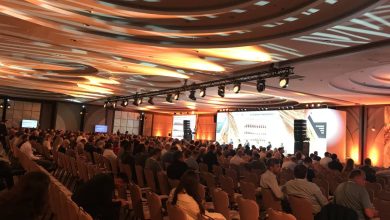
- Moghtada Kermanshahani, Vice Chaiman of Iran-Germany Chamber of Commerce: Iran needs more than 100 to 120 million Euros of investment every year in order to fight unemployment. The local investors can not provide this amount; therefore, we shoud allow well-known foreign companies to help us in the field of production. In the past 10 years, despite all the problems regarding trade with other countries, there has been 2.5 to 3 billion Euros in imported goods from Germany to Iran.
- Bahrehmand, The Confectioners’ Union Chairman: In most confectioneries in Iran, the flour that is normally used should be bakry flour; however, the quality of this kind of flour and also availability of it is not stable enough. Some of our flour mills still can not use a good quality wheat and this leads to unstablity in producing good quality bakery flour.
- Dr Rajab Zadeh, Head of Iran Grain Reserch Institute in the 90s: The small size of traditional bakeries is one of the main reasons for the low quality of the bread they produce. The traditional furnace bakeries need at least 60 square meters and the ones with machinary need 100 square meters.
- Motamed Vaziri, Vice Chairman of Local Trade Deputy of GTC: Following the request from the Guild of Pasta Producing Plants, in order to support this industry, the price of Durum wheat was reduced from 12.580 IRR to 9.363 IRR.
- CEO of Pan Up Ingredients: At the moment, there are few flour mills in Iran who use additives and improvers in order to improve the general quality of flour.
- Gholami, Chairman of Iran Customs Export Office: Unstability of the target markets, fluctutation in wheat and flour prices and the problems of clearance and exports are the most important factors in the temporary imports of wheat to Iran.
- Ebrahim Jalili, Chairman of Iran-India Chamber of Commerce: The Inductrial District of Iran-India will be founded in Chabahar Port in near future. Regarding the Indian technology and machinary and the Iranian oil and gas resource, these two countries can produce products which would be useful for other countries.
- Niloofar Penkar, German Exhibitions Representative in Iran: IBA Trade Fair is held in Munich, Germany every year. For attending the trade fair, the Iranian companies can register from October 2016.
- Amir Abad Port’s Director: Having 160000 tonnes grain storage capacity and 150000 tonnes warehouse capacity, Amir Abad Port is the most equipped port in North of Iran for grain transfers. This port’s annual capacity for grain discharge is 5 million tonnes.
- Beheshtian, CEO of Veissar Bread: Rightnow, the industrial bread counts for only less than 10% of the bread used in Iran; however, it was supposed to be 40%.
- A documentary movie about Persian Glim Rug which were used in keeping bread dough and the bread itself fresh for a longer time, has been recently made. This documentary is called “Kamoo Tablecloth” and it is a research project which has been done by going to the Nomads by Mr Salimi. Kamoo is the name of a village in the outskirts of Meimeh in Isfahan. This village and the villages around it are known for the exquisit Glim Rugs they make. These Glim Rugs are among the most practical tools for the women of this region.
- The 15th International Exhibition of Equipments and the Ingredients for Sweets and Chocolate in Iran will be held 13-16 September in Tehran. 500 Iranian and foreign countries will attend this exhibition.
- Iran-Switzerland Chamber of Commerce in collaboration with Industry, Mines and Agriculture Chamber of Commerce will send a group of businesspeople to Switzerland on Semptember 20th to 23rd. In this visit there will be 3 panel discussions in which the Iranian group will meet the Swiss company associates.
- Ms Melek Erener, Sales Manager of Aybakar in Iran: Today, Aybakar equipments are used in 24 different countries in the world including Germenay. African and American countries are the best target markets for Aybakar equipments. The most installation of Aybakar has been in Iraq, almost 90% of Iraq’s flour production machinary are from Aybakar.
- Merzad Jamshidi, District Chairman of IAOM Middle East Africa: Flour price, the ban on importing wheat and the fluctuations in Iran’s flour industry has made this industry not interesting for the foreign investors. The only sections that might be of ineterst for foreign investors are the fructose plants and the oil seed processing plants, because Iran is in need of these industries and this could attract foreign investors.
- Shahraki, CEO of Parsan Flour and representative of Alapala and Ugar in Iran: in the 18 yeras of working in Iran we have managed to offer our services to 120-130 companies. There has been times when we have done 10 different projects at the same time which is a distinguishable number for Parsan Company.
- Ard Daran Company is one of the Iranian companies which has been very active in Iraq’s market; however, according to Dr Sadeghian, CEO of Ard Daran, due to some sudden decisions in the past year by Iran’s government, the foreign customers have lost their trust in Iranians and repairing this damage needs twice the effort and investment.
- Vanda Tejarat Pars Company has been quite successful in providing grains in Northern ports of Iran. Being close to exporters such as Russia and Kazakhstan, this comany has planned its 5 year activity in the field of grain trade and is now one of the most well-known companies in this field.
- Mamatin is a producer of breakfast cereals in Iran which uses Italy’s Pavan technology. This company has the capacity of 2200 tonnes in every working shift. Mamatin produces more than 20 kinds of breakfast cereal.
- Qods Razavi Bread Company has launched warm distribution in Mashad using kiosks and the suitable shops. This kind of distribution will increase the customers of this company. Mashad is the most important city in Iran regarding the number of piligrims.



